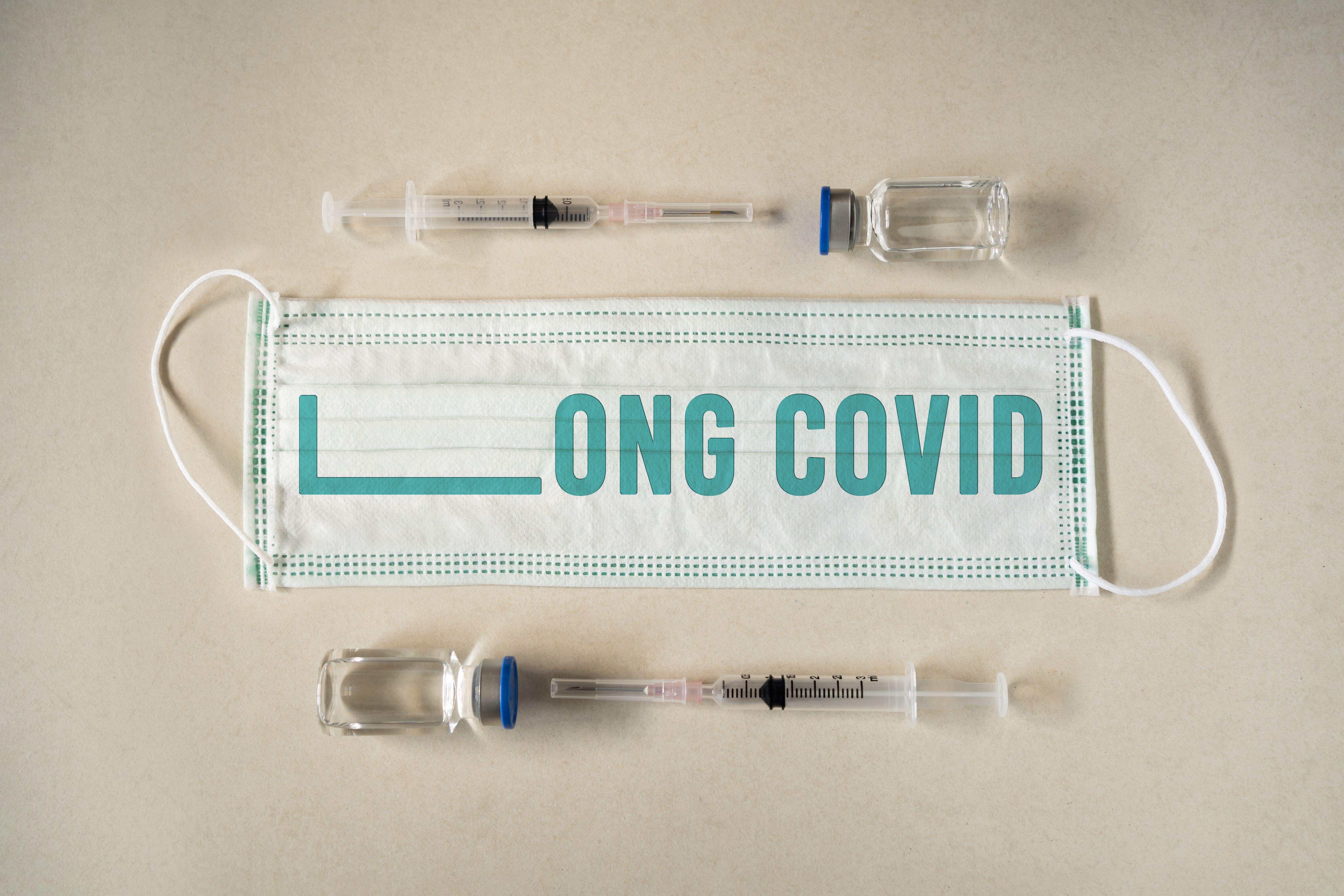
Your support helps us to tell the story
Our mission is to deliver unbiased, fact-based reporting that holds power to account and exposes the truth.
Whether $5 or $50, every contribution counts.
Support us to deliver journalism without an agenda.

Louise Thomas
Editor
A new study has revealed damage to the brainstem could be responsible for symptoms of long Covid.
Powerful MRI scanners were used to examine patients who had been admitted to hospital with Covid-19, which showed “long-lasting brain changes”.
This was “likely caused by an immune response to the virus”, researchers said.
Most people with Covid-19 feel significantly better within a few days of first displaying any symptoms, however for some it can last months or, in some extreme cases, years.
Scientists at the University of Cambridge used ultra high-resolution scanners, known as 7-Tesla or 7T scanners, that show the living brain in fine detail.
While the direct causes of long Covid are still being investigated, the NHS has set out a list of some of the common symptoms to look out for.
So, what exactly is long Covid, and when should we contact a medical professional about it?
What is long Covid?

“According to the World Health Organisation, long Covid is defined as the continuation or development of new symptoms three months after the initial Covid infection, with these symptoms lasting for at least two months and having no other identifiable cause,” says Dr Ashwin Sharma, from online pharmacy MedExpress.
“While extensive research is still being carried out, we know that these symptoms can persist for weeks, months, or even years, often affecting daily life.”
Who is most at risk?
“Anyone can get long Covid, but you are more likely to suffer prolonged symptoms if the initial infection was very severe, particularly if the infection resulted in a hospital or intensive care admission,” says Dr Adam Staten, NHS GP and clinical director at One Day Tests.
“There is also some evidence to suggest that women are more at risk as well as people over 65, or people who have other underlying health conditions.”
What are the common symptoms, and what other health issues need to be ruled out?
If you experience any of the following symptoms, see your local GP to confirm whether you have long Covid or if you are suffering from something else.
Extreme tiredness

“Fatigue can be debilitating for patients and is often described as an overwhelming tiredness which doesn’t improve with rest,” says Sharma. “Roughly 72% of those with long Covid reported fatigue as the most common symptom they experienced.”
“Fatigue is also linked to various other conditions such as depression, chronic fatigue syndrome and thyroid disorders, so it is important to discuss with your doctor if these symptoms are ongoing.”
Feeling short of breath
“Breathlessness in long Covid can occur in patients even during the most mild of activity,” says Sharma. “This symptom can also present among asthma sufferers, those with heart disease and patients suffering anxiety – so it is important to consult your GP if you feel severe breathlessness, oncoming chest pain or dizziness.”
Problems with your memory and concentration

“Sufferers of long Covid can sometimes report difficulties focusing or remembering things, which can make everyday tasks a challenge,” says Sharma.
People experiencing memory problems are usually advised to take blood tests checking for vitamin B12 deficiency, kidney, liver, or thyroid problems, says Staten.
“In some cases, further assessment under a ‘memory clinic’ may be undertaken if there is concern about dementia, and this may include brain scans,” adds Staten. “It is also important to recognise that mood problems such as depression and anxiety can also affect concentration and memory, and women may want to consider if the issue is a symptom of perimenopause or menopause which might improve with treatment of these.”
Heart palpitations

“Heart palpitations, which is the sensation of racing and pounding heartbeat, have been reported in long Covid sufferers,” says Sharma.
Staten adds that although these are often harmless with no significant underlying cause, they should always be investigated as they may represent problems such as heart arrhythmias.
“Investigating palpitations usually involves blood tests, an ECG and, possibly, the wearing of a heart monitor for 24 hours or longer,” says Staten.
Dizziness
“Dizziness and lightheadedness are often linked to people with low blood pressure or problems with heart rate regulation, and cases have been reported in people living with long Covid,” says Sharma. “You should seek urgent care if your dizziness includes fainting or is accompanied by chest pain.”
Dizziness could also be a sign of dehydration or low blood sugar.
“Make sure that you are working enough liquids and nutritious foods into your diet and contact your GP if these symptoms persist,” advises Sharma.
Joint pain and muscle aches
“Joint pains and muscle aches are a very common feature of an initial Covid infection, and they can persist in long Covid,” says Staten. “A doctor will usually want to go through your symptoms with you and examine you, and then may consider tests like blood tests or X-rays if there is concern that your aches and pains might be due to other conditions like inflammatory arthritis or muscle inflammation.”
Can it be treated?
“While there isn’t a ‘one size fits all’ approach for managing long Covid, support is available to address many of the associated symptoms,” emphasises Sharma. “It is important to consult with your GP to discuss your specific symptoms and explore management strategies.
“Your GP may even be able to refer you to a specialist long Covid clinic for targeted treatment.”







